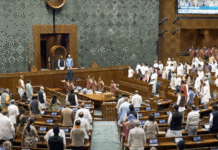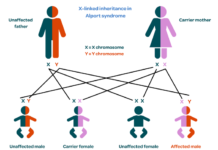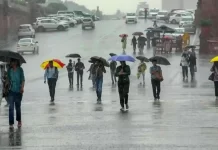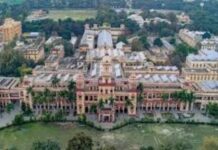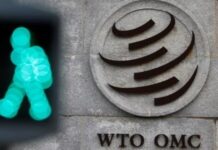There is neither a safeguarding legislation which would protect the privacy of the citizens nor a law which would regulate the use of remote biometric surveillance”
Mohammed Hussain Ahmed siyasat.net
Hyderabad: The people are joining the “Ban the Scan” campaign in large numbers in the city, paving the way for a hot debate among the citizens and creating a face off situation between the social activists and the city police.
The social activists express their concern that the Hyderabad Police Department is using the “Facial recognition Technologies” (FRT) to prepare people’s database without their approval and supplying these datas to other investigating agencies. The city Police have denied that they are working on such a project.
The “Ban the Scan” campaign was launched by the Internet Freedom Foundation with the support of Amnesty International and an NGO “Article 19”.
Amnesty International ran this campaign in New York in June this year. However, this campaign has been caught up late by the city social activists.
Anushka Jain of Internet Freedom Foundation (IFF) said, “The police take the photographs of those people who are not criminals to make their profiles and share them with other investigating agencies. This is a clear violation of citizens’ privacy.”
She further alleged that the city police is using FRT for the civilians’ surveillance. “They are paving the way for the misuse of this advanced technology to violate the civilians’ human rights and their privacy by the government.”
According to a study by the Internet Freedom Foundation, Telangana state in recent years has been the site of increased usage of the highest number of dangerous facial recognition technologies against civilians in India.
FRT Violates Human Rights
The full extent of discrimination and mass surveillance driven by FRT is still largely unknown. However, it is increasingly becoming clear that these technologies are violating human rights on a global scale across multiple contexts.
According to the above study, the use of FRT has been identified as harmful for communities across the globe. Calls for its ban have been gaining momentum with multiple jurisdictions across the Global North implementing permanent bans or temporary moratoriums on the use of the technology. However, similar calls for actions have not gained traction in the Global South including in India.
In India, the IFF through its Project Panoptic, has called for a ban on the use of this technology specifically by government entities, police and other security/intelligence agencies.
IFF has also urged the government to halt all ongoing facial recognition technology projects being developed and deployed at the Central and State level until legislation is passed that provides sufficient privacy safeguards.
“Ban the Scan” Hyderabad
FRT threatens fundamental rights when it works and also when it doesn’t work. Facial recognition is biometric technology which can be used to identify individuals by their face from millions of images in a database.
FRT threatens the rights of minority communities who are at risk of false identification and false arrests. But even when it correctly identifies someone it threatens of discriminatory policing.
Despite these human rights concerns, the Indian government has spent 9.6 billion rupees on facial recognition technology. The technology is developed through scraping millions of images from social media profiles, police databases, and publicly accessible sources like newspapers without permission or consent.
Minority communities are at risk of being misidentified and falsely arrested. For instance, Delhi police’s facial recognition system was reported to be accurate only 2% of the time.
Even when it “works” accurately, facial recognition can further exacerbate discriminatory policing that disadvantages individuals who belong to historically disadvantaged sections of society – Muslims, Dalits and Adivasis – and hampers their constitutional rights to stage protests. It can also prevent the free and safe exercise of peaceful assembly by acting as a tool of mass surveillance.
The law enforcement is promoting facial recognition ostensibly to protect women and children which in fact is used as a system of mass surveillance.
“The India’s Automated Facial Recognition System proposed by the Home Ministry contemplates a nationwide centralized database that will enable State actors to use facial recognition to track every move of the citizens in the absence of basic privacy, security and rights protections. That’s why we are calling on the Telangana Law Enforcement agencies to ban the use of FRT”, Jain said.
Hyderabad a most surveilled City
According to the aforesaid study,Hyderabad City in Telangana state is already ranked as one of the most surveilled cities in the world. Still, the government has initiated the construction of a command and control centre (CCC), a building that connects the city’s vast CCTV infrastructure in real time.
Situated in Hyderabad’s Banjara Hills area, the CCC reportedly supports the processing of data from up to 600,000 cameras at once with the possibility to increase beyond this scope across Hyderabad city, Rachakonda, and Cyberabad.
These cameras can be used in combination with Hyderabad police’s existing facial recognition cameras to track and identify individuals across space.
Amnesty International, Internet Freedom Foundation, and Article 19’s research unearthed documents by Hyderabad Police disclosing the technical specification of their cameras which have the capability of capturing imagery from at minimum 2 megapixels and upwards. In practice, this means the cameras have a field of vision with a radius of at least 30 meters.
A group of Telangana-based “Ban the Scan” volunteers mapped the locations of immediately visible outdoor CCTV infrastructure in two sampled neighbourhoods of Kala Pathar and Kishan Bagh. They surveyed an area of approximately 988,123.5 square meters and 764,207.8542 square meters, respectively.
Based on this data the analysis estimated that in these two neighbourhoods at least 530,864 and 513,683 square meters, respectively, was surveilled by CCTV cameras – that’s 53.7% and 62.7% of the total area covered by volunteers.
In addition to earlier deployments of facial recognition capable devices beyond CCTV cameras like tablets and other “smart” cameras, the construction of the CCC risks aggravating the already rampant rights-eroding practice with no regulation in place to protect civilians.
Given that the Indian authorities have a record of using facial recognition tools to abuse human rights, the CCC is truly a worrying development.
Hyd Police use tablets to photograph citizens
Amnesty International’s Digital Verification Corps discovered dozens of purported incidents filmed from November 2019 to July 2021 showing Hyderabad police using tablets to photograph civilians in the streets while refusing to explain why.
In one case, an alleged offender was subject to unexplained biometric conscription. Other cases have shown the random solicitation of both facial and fingerprint reads from civilians.
In May 2021, videos purportedly showed Hyderabad police asking civilians to, inexplicably, remove their masks to obtain a biometric capture on a tablet.
No law to regulate biometric surveillance
Currently, there is neither a safeguarding legislation which would protect the privacy of the citizens nor a law which would regulate the use of remote biometric surveillance. This exacerbates the danger of misuse of these technologies. Thus, the deployment and use of this technology is harmful and must be stopped forthwith.
“Ban the Scan” calls for halt to use of FRT
The “Ban the Scan” calls on Indian law enforcement agencies to halt the procurement and use of facial recognition technologies. No amount of legal safeguards can make facial recognition compatible with human rights.
Under the Identification of Prisoners Act of 1920, it is neither permitted to take photographs of persons by police unless arrested or convicted for a crime nor its sharing with other law enforcement agencies.
“When biometric surveillance is deployed for as diverse contexts as municipal elections, Covid-19 restriction compliance and unexplained stop and frisk, there’s a slippery slope towards the complete surveillance of civic life, threatening our human rights to privacy, freedom of assembly, autonomy and dignity”, the ‘Ban the Scan’ activist said.
(www.siyasat.net is Ahmedabad, Gujarat, India based Website, powered by Gujarat siyasat, a Fortnightly)
An Appeal For The Sake Of Upright & Fearless Brand Of Journalism
To sustain and improve our coverage. Gujarat siyasat- a vernacular Fortnightly and English٫ Hindi Website www.siyasat.net
Your little but timely support is needed
Bank details، GUJARAT SIYASAT, Current Account 204720110000318, ifsc code BKID0002047 BANK OF INDIA , VASNA BRANCH, AHMEDABAD GUJARAT INDIA
Also on Phone pay, Paytm,Google pay +91 9925531111
We hope you help and see siyasat.net grow. And rejoice that your contribution has made it possible.
सत्य को ज़िंदा रखने की इस मुहिम में आपका सहयोग बेहद ज़रूरी है। आपसे मिली सहयोग राशि हमारे लिए संजीवनी का कार्य करेगी और हमे इस मार्ग पर निरंतर चलने के लिए प्रेरित करेगी। याद रखिये ! सत्य विचलित हो सकता है पराजित नहीं।
Regards,
Team siyasat dot net
Ahmedabad.Gujarat india



